
Copernical Team
New rocket successfully takes to outer space
 Kuaizhou 11, the newest model of carrier rocket developed by China Aerospace Science and Industry Corp, carried out its first successful flight on Wednesday morning, lifting an experimental satellite into space, according to the company.
The rocket blasted off at 9:15 am at the Jiuquan Satellite Launch Center in northwestern China's Gobi Desert and soon deployed the Xingyun Transport VDES
Kuaizhou 11, the newest model of carrier rocket developed by China Aerospace Science and Industry Corp, carried out its first successful flight on Wednesday morning, lifting an experimental satellite into space, according to the company.
The rocket blasted off at 9:15 am at the Jiuquan Satellite Launch Center in northwestern China's Gobi Desert and soon deployed the Xingyun Transport VDES NASA advances Artemis Moon rocket production for future missions
 NASA is moving forward with Space Launch System (SLS) production and assembly activities for future Artemis missions.
The agency is optimizing manufacturing capabilities by enabling SLS core stage lead contractor Boeing to use facilities at NASA's Kennedy Space Center in Florida to perform some core stage assembly and outfitting activities beginning with the Artemis III rocket. In tandem,
NASA is moving forward with Space Launch System (SLS) production and assembly activities for future Artemis missions.
The agency is optimizing manufacturing capabilities by enabling SLS core stage lead contractor Boeing to use facilities at NASA's Kennedy Space Center in Florida to perform some core stage assembly and outfitting activities beginning with the Artemis III rocket. In tandem, Southern Launch and ATSpace return to launch up to two Kestrel I rockets before the end of the year
 by Kurtis Eichler for The Lead
After a severe electrical storm damaged an ATSpace rocket on the launch pad in November, the company has announced that repairs have been completed and they will attempt another launch in the coming weeks, followed by another already planned launch of a second rocket.
ATSpace CEO Dr Yen Sen Chen said they were pleased to discover that the repairs required to
by Kurtis Eichler for The Lead
After a severe electrical storm damaged an ATSpace rocket on the launch pad in November, the company has announced that repairs have been completed and they will attempt another launch in the coming weeks, followed by another already planned launch of a second rocket.
ATSpace CEO Dr Yen Sen Chen said they were pleased to discover that the repairs required to New lidar technique could help robotic vehicles land safely on Mars
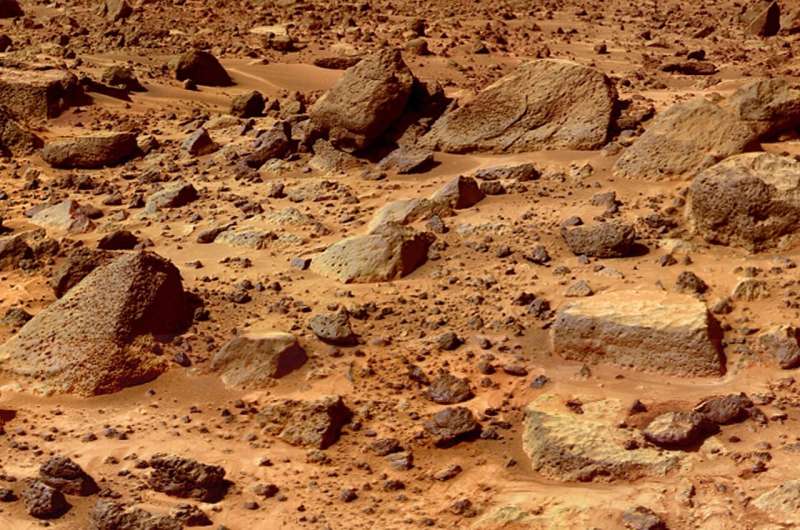
In a new study, scientists demonstrate a new lidar technique that could help robotic vehicles avoid hazards when landing during future missions to Mars or the moon. The method uses flash lidar to record full 3D images with a single laser pulse, which prevents the motion blur that is present with traditional lidar approaches.
Farzin Amzajerdian from NASA Langley Research Center will present the new findings at the Optica Laser Congress, 11–15 December 2022. The presentation, titled "Development of a 3D Flash Lidar for Terrain Sensing and Safe Landing on Planetary Bodies," will be presented on-site and online in a hybrid format.
"Lidar technology plays a critical role in future missions to the moon, Mars, and other solar system bodies since they require precision safe landing at specific locations where valuable resources may be found or may lead to important scientific discoveries," said principal investigator, Farzin Amzajerdian, Ph.D.
A streamlined design
Flash lidar is useful for several purposes throughout the process of landing robotic vehicles. As a vehicle descends to a surface, flash lidar can be used to generate 3D terrain maps from an altitude of several kilometers to reduce position error.
Will we ever go back to explore the ice giants? Yes, if we keep the missions simple and affordable
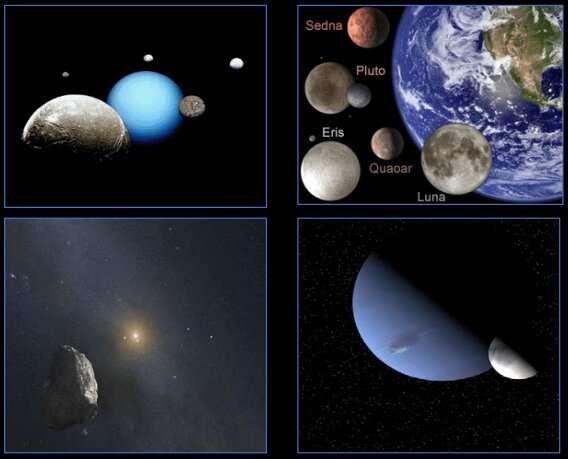
It's been over 35 years since a spacecraft visited Uranus and Neptune. That was Voyager 2, and it only did flybys. Will we ever go back? There are discoveries waiting to be made on these fascinating ice giants and their moons.
How karst caves can be used as a terrestrial simulation platform to test and design human bases in lunar lava tubes
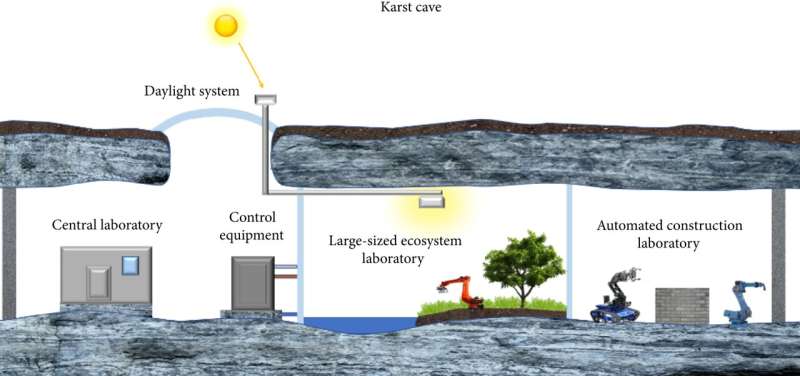
If human beings want to survive on the other planets for a long time, they must first find or set up a safe, stable, and long-term shelter. Lunar lava tubes are geological structures on the moon discovered in recent years. They take the form of hollow pipe-shaped caves formed on the surface of the planet by volcanic activity.
Because a lunar lava tube has a hard basalt roof, its internal environmental factors such as temperature changes, radiation doses, and the probability of being hit by meteorites are relatively limited. As such, it offers in theory an ideal human lunar habitat. Until now, more than 300 potential cave entrances have been identified on the moon. The "skylights" they display are the result of a kind of pit caused by the active lava tube collapsing.
In a new article published in Space: Science & Technology, the research team led by Gengxin Xie and Linli Guo has discussed the feasibility of using lunar lava tubes for human habitation, proposed the idea of using the Earth's karst caves to simulate extraterrestrial lava tubes, selected caves in Chongqing as the simulation site, and demonstrated the feasibility in terms of both structural and environmental aspects.
ESA plasma sampler headed to the Moon and ISS

An innovative ESA-backed instrument to sample the space weather environment in-situ is set to join the International Space Station. Norway’s multi-Needle Langmuir Probe, m-NLP, due to be fitted to the European-made Bartolomeo platform on the ISS, a ‘front porch’ open to space, will map the ionospheric plasma surrounding the Station in unprecedented high resolution, performing almost 10 000 measurements per second continuously along its orbit.
Launches secured for five Sentinel satellites
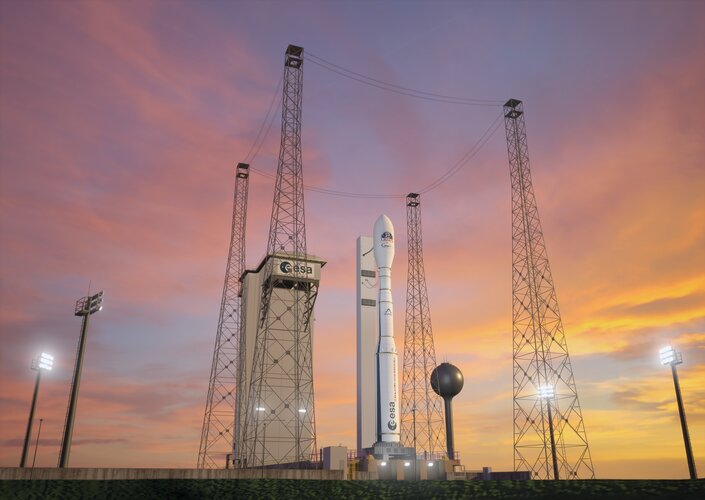
A contract signed today between ESA and Arianespace has ensured rides into orbit for five Copernicus Sentinels: Sentinel-1D, Sentinel-2C, Sentinel-3C, and the Copernicus Anthropogenic Carbon Dioxide-A and -B satellites. All the satellites will be launched on Vega-C rockets from Europe’s Spaceport in French Guiana and are scheduled to take place between 2024 and 2026.
MTG-I1 never to be seen again
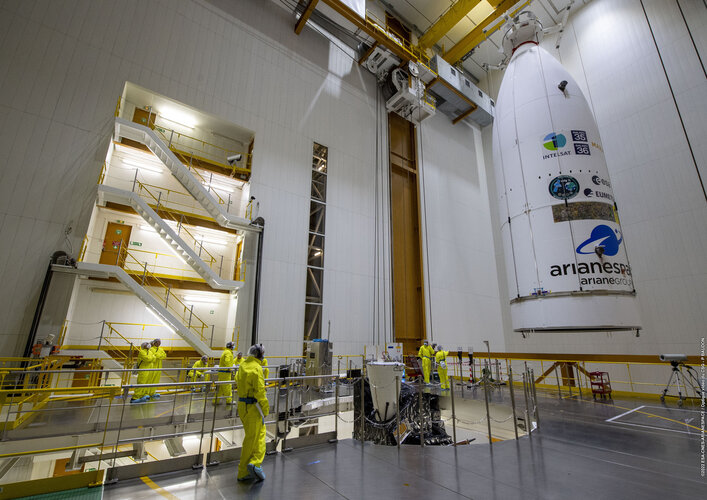
As preparations to launch Europe’s first Meteosat Third Generation Imager satellite continue, the team at Europe’s Spaceport in Kourou, French Guiana, has bid farewell to their precious satellite as it was sealed from view within the Ariane 5 rocket’s fairing. This all-new weather satellite is set to take to the skies on 13 December.
Kilometer-scale modeling better reflects the relationship between land and precipitation
 The technique referred to as "dynamical downscaling", which involves the use of regional climate models to dynamically infer the effects of large-scale climate processes at local scales, has proved to be an effective way to simulate precipitation at high resolution. Moreover, with advancements in supercomputing capabilities, dynamical downscaling is now progressing to the kilometer scale.
The technique referred to as "dynamical downscaling", which involves the use of regional climate models to dynamically infer the effects of large-scale climate processes at local scales, has proved to be an effective way to simulate precipitation at high resolution. Moreover, with advancements in supercomputing capabilities, dynamical downscaling is now progressing to the kilometer scale. 
